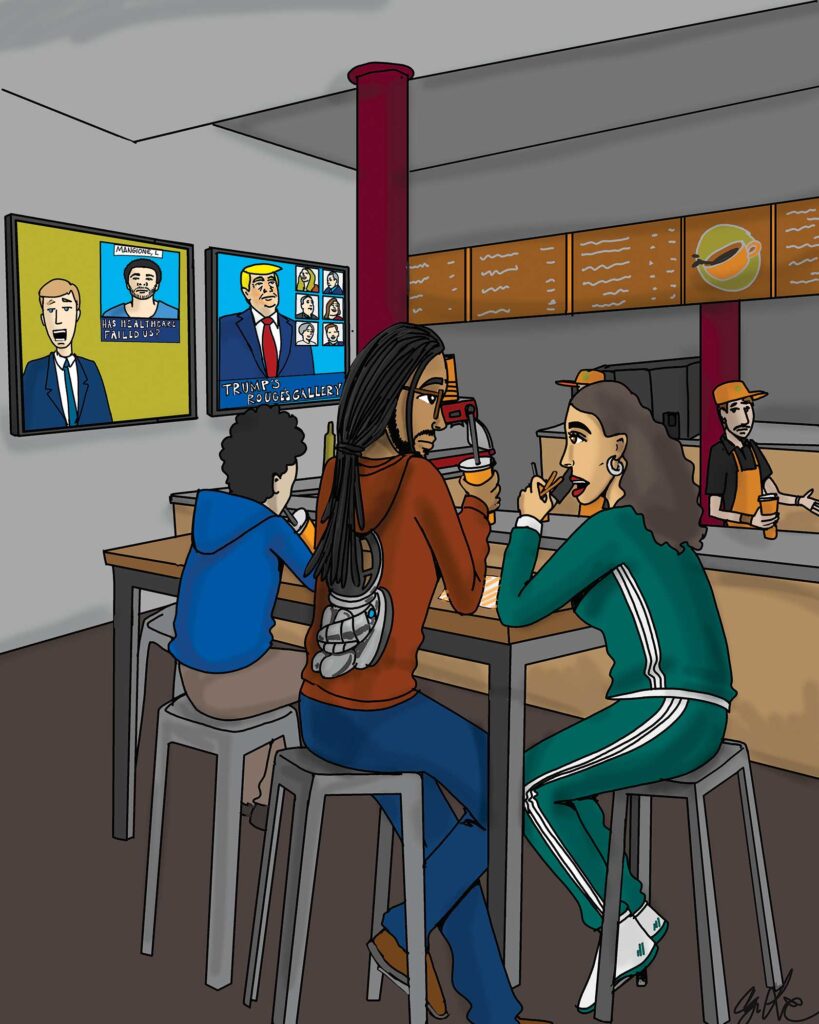
The brazen murder last week of UnitedHealthcare CEO Brian Thompson on a Manhattan sidewalk produced sympathy for the Minnesota-based executive and his family, elicited the usual concerns about gun violence and reinforced public fears about urban crime.
But the early-morning shooting by a gunman apparently lying in wait for Thompson at the entrance to a midtown hotel where he was scheduled to address an investors conference soon spiraled in a whole different direction – even before the back-story of the chief suspect came to light.
The killing of the for-profit health care mogul immediately sparked a series of morbid reactions trending on the approval spectrum. According to a review by a pair of Yale researchers, UnitedHealthcare’s online bereavement message “was cruelly mocked by 77,000 laughing response posts.” A CNN Tik Tok post prompted a cynical response that racked up 32,000 user “likes”: “Thoughts and deductibles to the family. Unfortunately, my condolences are out-of-network.”
The callous reactions to the high-profile homicide have laid bare the frustrations and anger of much of the American public to a health care system that routinely bankrupts individuals and families and leaves millions of citizens living in stress and fear of medical setbacks.
The arrest of 26-year-old Luigi Mangione for Thompson’s murder earlier this week revealed a suspect whose interaction with the medical system seemed to have led him on a path from prep-school valedictorian and Ivy League achiever to painful isolation – alienated from friends and families after back surgery.
The overwhelming question is what could have gone so wrong and driven him to commit such a horrible crime? And why would so many people hail Mangione as a vigilante hero?
The backdrop to the killing helps to answer the second question. Here in Massachusetts, the hospital crisis set in motion by Steward Health Care’s rapacious practices – now reportedly under the scrutiny of a federal grand jury — forced the closing of several facilities and left communities in health care deserts.
There has also been a trend from medical insurance providers to minimize their exposure by limiting coverage to their clients for procedures that their doctors say are highly needed. Mangione allegedly touched on this issue by inscribing the words “deny,” “defend,” and “depose” on 9 mm shell-casings found on the scene.
There is no justification for committing murder to send a message to the managers and shareholders of for-profit health care companies. But there is a need to question the role of profiteering in the delivery of health care that leaves Americans with shorter life spans and empty bank accounts compared to other industrialized nations with national health care.
Vigilantism is not the answer to our health care woes. Vigilance and political action are the proper recourses we must take to ensure health care as a right and not a privilege.
-— Ronald Mitchell







